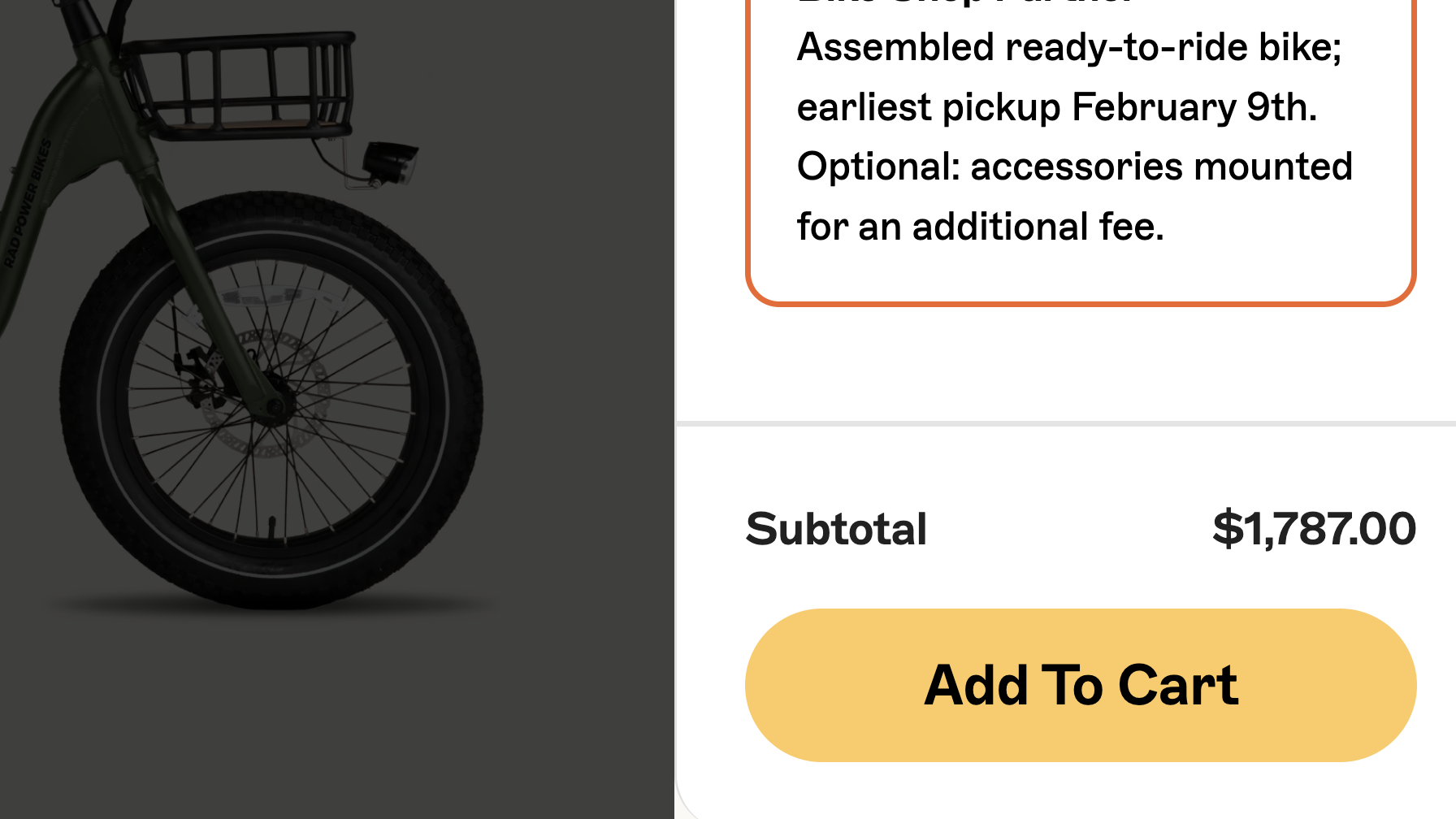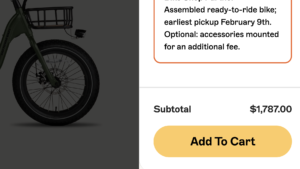In the last few years, Direct-to-Consumer ebike suppliers have boomed, with both online retailers and manufacturers selling direct. DTC is a significant change to the traditional buying model from a local bike shop.
There isn’t a right or wrong way to purchase your next ebike, but it’s good to know the pros and cons of each, so you make a sound purchase that brings you lots of enjoyment and utility over the long run.
Buying From a Local Bike Shop
Local bike shops are brick-and-mortar retail stores that carry a variety of ebikes, pedal bikes, accessories, and clothing. They usually have a repair shop to provide service on ebikes. Local bike shops offer many qualitative benefits to the ebike customer beyond price.
Pros
You talk and work with an actual human
A shop employee listens to you to find the best ebike to fit your needs. They work with you directly on fitting, selecting types of ebikes, and finding accessories that complement your ebike.
Establish a relationship
As you work with a shop over time, they get to know you better and understand your ebike and the wear and tear you’ve put on it. They’ll have a comprehensive understanding of all the maintenance that’s been done on your ebike.
Service and repair for your ebike
If they sell a particular ebike, they are trained to work on that ebike, along with its motor, battery, and other mechanical parts. They will also have replacement parts for that ebike.
Ride the ebike to test fit, performance, and capabilities
Like cars, ebikes have their fit, characteristics, and idiosyncrasies. Riding an ebike before you buy lets you get a feel of the bike to see if you like how it rides.
Support local economy
That ebike shop owner or employee may be your neighbor or the parent of your kid’s friend. Buying local keeps money in the local economy benefitting your local community.
Cons
A limited selection of brands and models on hand
Local shops are brick-and-mortar stores with limited space and capital for inventory. They are limited in what they offer, so you may not see the ebike you want.
More expensive
Local shops have higher operating expenses like retail space, employee wages, inventory, and insurance. Since they are often smaller, they need to run higher margins on products to cover their operating costs and be profitable.
Buying Direct To Consumer (Online)
Direct to Consumer (DTC) suppliers are manufacturers or online dealers. They sell their ebikes online and ship the ebike directly to the customer’s door. The ebike is mostly assembled and requires the customer to do some final minor assembly.
Pros
Greater selection
The World Wide Web can provide more options for different ebikes than one local bike shop can. Customers can choose between manufacturers or dealers with greater inventory and selection.
Less expensive
Online retailers don’t have to pay rent on street-front brick-and-mortar shops. They can sell and distribute out of large warehouses that are more cost-effective. These savings translate to lower prices of comparable ebikes for the customer.
Shipped directly to your home
Hit the BUY button, and a few days later, an ebike shows up at your house. You don’t have to fight traffic or look for parking to go to the local bike shop (Wish there was a solution for this!😉). D2C offers a different level of convenience for the shopper.
Cons
No service
Often, when you purchase an ebike online, you get just an ebike. There’s no qualified mechanic to do the final assembly or an overview of the bike to ensure all the components are installed and calibrated correctly. There’s no one to give you a fitting to ensure that the ebike is set up to provide you with the most comfortable and efficient ride possible.
Can’t test ride for fit or performance
Unless you had an opportunity to ride the same bike that you purchased online beforehand, it’s a crapshoot if you get what you were after in your ebike.
Don’t support local shops or economy
Your money went to support a company in another town, state, or country.




